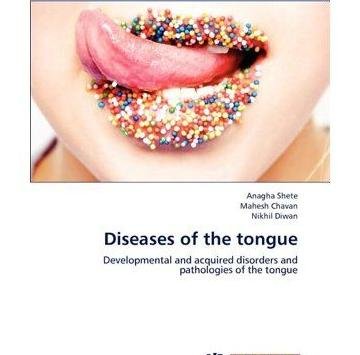The tongue is a remarkable organ, not only for its role in speech and taste but also for its potential to reflect our overall health. Tongue diseases, while relatively uncommon, can have a significant impact on our oral and systemic well-being. In this article, we will explore some of the different types of tongue diseases, their causes, symptoms, and available treatments.
Geographic Tongue (Benign Migratory Glossitis)
Causes: The exact cause is unknown, but it is believed to be related to genetics and autoimmune factors.
Symptoms: Geographic tongue is characterized by irregular, map-like patterns on the tongue’s surface, with red, smooth patches that may change location over time. Some individuals may experience mild discomfort or heightened sensitivity to certain foods.
Treatment: In most cases, treatment is not required. Avoiding irritants and maintaining good oral hygiene can help manage symptoms.
Oral Thrush (Candidiasis)
Causes: Oral thrush is caused by an overgrowth of the Candida fungus in the mouth, often due to weakened immune systems, antibiotics, or certain medications.
Symptoms: White, creamy lesions on the tongue and inner cheeks, which can be painful or cause a burning sensation. It may also lead to loss of taste.
Treatment: Antifungal medications prescribed by a healthcare provider, along with maintaining proper oral hygiene.
Black Hairy Tongue (Lingua Villosa)
Causes: This condition results from elongation of the tiny projections (papillae) on the tongue’s surface, often due to poor oral hygiene, tobacco use, or certain medications.
Symptoms: A dark discoloration of the tongue, giving it a “hairy” appearance. It is usually painless but can lead to bad breath.
Treatment: Improving oral hygiene practices, quitting tobacco, and in some cases, a dentist or doctor may recommend tongue scraping.
Tongue Cancer
Causes: Smoking, excessive alcohol consumption, and human papillomavirus (HPV) infection are common risk factors.
Symptoms: Persistent pain, ulcers, or lumps on the tongue, difficulty in swallowing or moving the tongue, and changes in speech. These symptoms require immediate medical attention.
Treatment: Treatment options include surgery, radiation therapy, chemotherapy, or a combination thereof. Early detection is critical for successful treatment.
Fissured Tongue (Scrotal Tongue)
Causes: The exact cause is unknown, but it is believed to be associated with genetics.
Symptoms: Deep grooves or fissures on the tongue’s surface, which may trap food particles and bacteria, leading to bad breath.
Treatment: Typically, no treatment is required. Maintaining good oral hygiene and using a tongue scraper can help alleviate symptoms.
Aphthous Ulcers (Canker Sores)
Causes: The precise cause is unclear, but factors such as stress, injury, and certain foods may trigger these painful ulcers.
Symptoms: Small, round, painful sores on the tongue or other areas inside the mouth.
Treatment: Over-the-counter or prescription topical treatments, as well as pain relief measures, can help manage symptoms.
Conclusion
Tongue diseases, while diverse in their causes and symptoms, highlight the importance of maintaining good oral hygiene and seeking medical or dental attention when necessary. Some tongue conditions are benign and require minimal intervention, while others, such as tongue cancer, demand immediate medical attention and treatment.
Regular dental check-ups, a balanced diet, and avoiding tobacco and excessive alcohol consumption can significantly reduce the risk of developing tongue diseases. Additionally, being aware of any changes in the appearance or sensation of your tongue and promptly seeking professional advice can lead to early diagnosis and better outcomes when dealing with these conditions.

